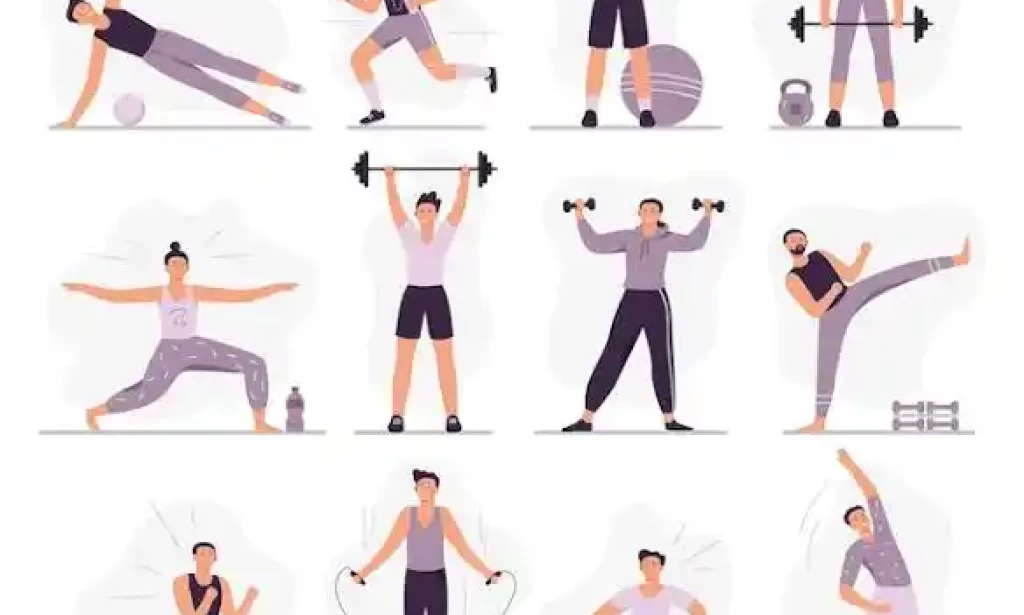Physical fitness is not just about looking good; it's a holistic approach to well-being that encompasses various elements contributing to a healthy and active lifestyle. In a world dominated by sedentary habits, understanding and incorporating the key components of physical fitness is essential for maintaining optimal health.
Cardiovascular Endurance:
One of the cornerstones of physical fitness is cardiovascular endurance. Engaging in activities that elevate the heart rate, such as running, cycling, or swimming, strengthens the heart and lungs. This not only improves overall stamina but also enhances the body's ability to efficiently transport oxygen, vital for sustaining energy during daily activities.
Strength Training:
Building and maintaining muscle strength is crucial for overall health. Strength training not only tones muscles but also helps prevent age-related muscle loss. Incorporating resistance exercises, such as weightlifting or bodyweight exercises like squats and push-ups, is key to promoting muscular strength and endurance.
Flexibility and Mobility:
Often overlooked, flexibility plays a pivotal role in physical fitness. Regular stretching exercises improve joint range of motion, reduce the risk of injuries, and enhance overall flexibility. Activities like yoga or Pilates can help maintain flexibility and mobility, ensuring the body moves freely and efficiently.
Balance and Coordination:
Balancing exercises are essential for stability and preventing falls, especially as we age. Activities like tai chi or simple balance drills challenge the body to maintain equilibrium, enhancing overall coordination and reducing the risk of injuries related to slips or falls.
Healthy Nutrition:
Physical fitness isn't solely about exercise; a balanced and nutritious diet is equally vital. Proper nutrition fuels the body, providing the energy needed for workouts and aiding in muscle recovery. A diet rich in fruits, vegetables, lean proteins, and whole grains supports overall health and complements a fitness routine.
Rest and Recovery:
Allowing the body adequate time to rest and recover is often underestimated. Overtraining can lead to burnout, increased injury risk, and hinder progress. Quality sleep, rest days, and techniques like stretching or massage contribute to optimal recovery, ensuring sustained fitness gains.
Mind-Body Connection:
Physical fitness extends beyond the body; it includes mental well-being. Engaging in activities that promote mindfulness, such as meditation or deep-breathing exercises, fosters a strong mind-body connection. This holistic approach contributes to stress reduction, improved focus, and enhanced overall mental health.
Consistency is Key:
Achieving and maintaining physical fitness requires consistency. Establishing a routine that includes a variety of exercises, balanced nutrition, and sufficient rest is essential. Consistency not only maximizes the benefits but also builds a foundation for long-term health.
In conclusion, physical fitness is a multifaceted journey that encompasses cardiovascular endurance, strength training, flexibility, balance, nutrition, rest, and a strong mind-body connection. By embracing these elements, individuals can cultivate a lifestyle that promotes overall well-being, longevity, and an active, fulfilling life.



You must be logged in to post a comment.